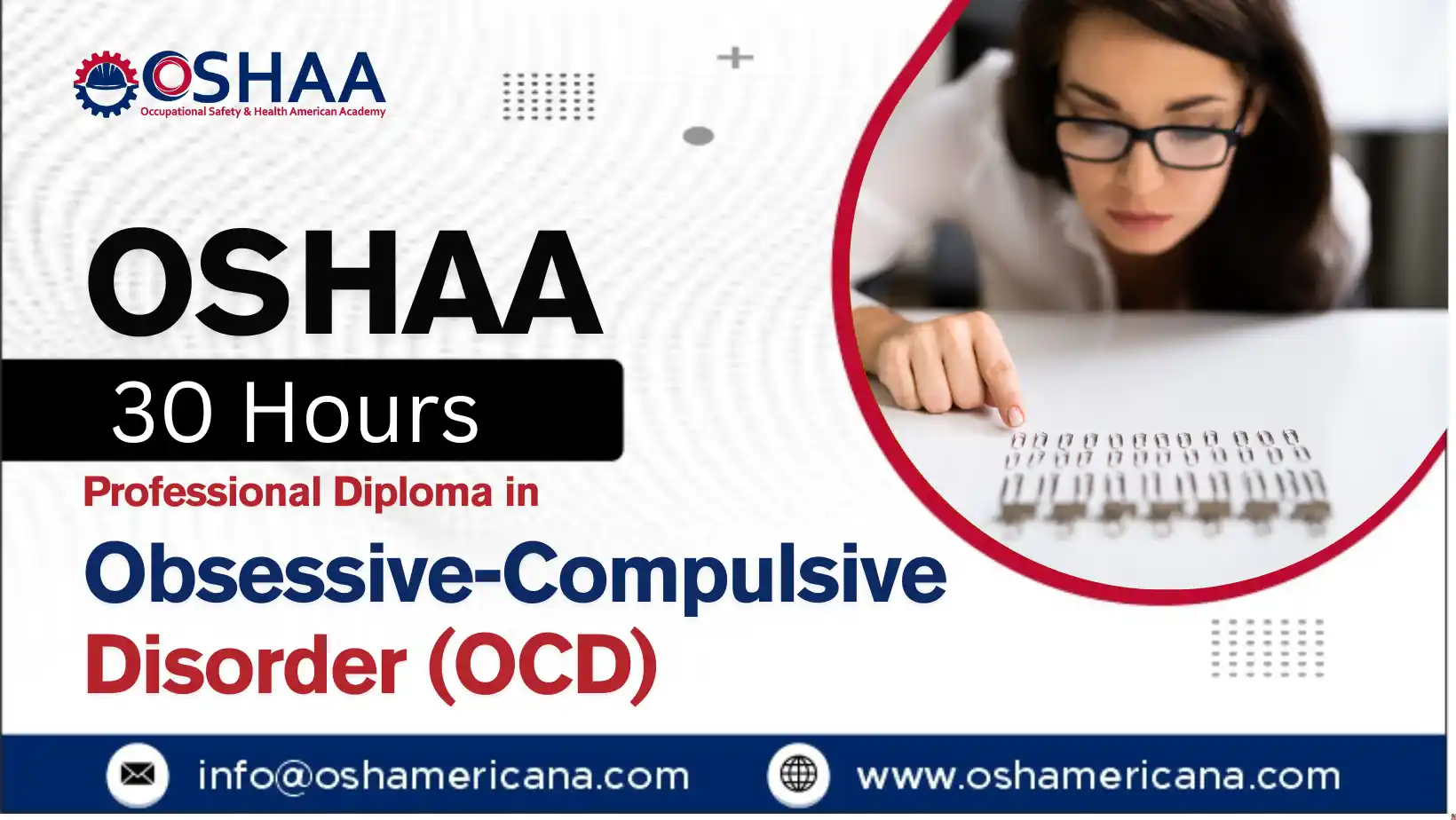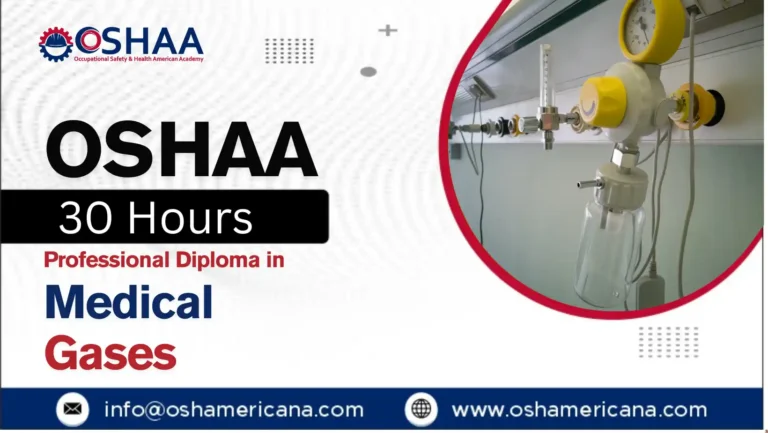Gain Clinical Confidence in OCD with Professional Diploma
Obsessive-Compulsive Disorder (OCD) is a complex mental health condition affecting people of all ages and backgrounds. Understanding, assessing, and supporting individuals with OCD requires structured education and practical skills. The OSHAA 30-Hours Professional Diploma in Obsessive-Compulsive Disorder (OCD) is a comprehensive training programme designed to equip professionals with the knowledge, therapeutic strategies, and confidence needed to effectively support those impacted by this condition.
This diploma provides an in-depth exploration of the psychological, behavioural, and neurological aspects of OCD. Over 30 guided hours, participants gain both theoretical insights and practical guidance on assessment, diagnosis, and evidence-based interventions. The curriculum is designed to meet UK professional standards, making it suitable for those seeking to expand their mental health expertise or enter the field of psychological and therapeutic support.
Ideal for mental health practitioners, counsellors, psychologists, social care professionals, coaches, educators, and those supporting clients or family members, this course combines research-based content with real-world applications. Participants engage with updated case studies, interactive exercises, and assessment tasks to reinforce learning and professional competency.
Developed by experienced mental health educators, the OSHAA 30-Hours Professional Diploma in OCD delivers flexible, accessible learning with a strong focus on practical application. By completing this diploma, participants build a solid foundation in understanding, supporting, and managing OCD, enabling them to provide care with empathy, skill, and confidence.
OSHAA 30-Hours Professional Diploma in Obsessive-Compulsive Disorder (OCD)
Study Units
Learning Outcomes
Introduction to Obsessive-Compulsive Disorder and Historical Context (3 Hours)
- Understand the definition and core characteristics of OCD
- Explore the historical development and evolution of OCD diagnosis and treatment
- Recognise cultural and societal perceptions of OCD over time
- Identify the importance of early recognition and intervention
Classification, Symptomatology, and OCD Subtypes (3 Hours)
- Identify diagnostic criteria for OCD as outlined in major classification systems
- Differentiate between common OCD subtypes and symptom clusters
- Understand the spectrum of obsessive thoughts and compulsive behaviours
- Recognise variations in symptom presentation across age groups
Psychological and Neurobiological Theories of OCD (4 Hours)
- Examine key psychological models explaining the onset and maintenance of OCD
- Understand the role of cognitive distortions and maladaptive beliefs
- Explore neurobiological findings related to brain structure and function in OCD
- Evaluate the influence of genetics and environmental factors on OCD development
Cognitive and Behavioural Features of OCD (6 Hours)
- Analyse patterns of obsessive thinking and compulsive behaviours
- Understand how avoidance and safety behaviours reinforce OCD symptoms
- Identify behavioural triggers and maintenance cycles
- Apply behavioural theory to understand OCD responses and habits
- Examine the impact of OCD on daily functioning and quality of life
- Recognise the interplay between thought processes and behavioural responses
Assessment Tools and Diagnostic Criteria (4 Hours)
- Learn to use standardised assessment tools for identifying OCD
- Understand structured clinical interviews and rating scales
- Differentiate OCD from similar mental health conditions through accurate assessment
- Apply diagnostic criteria to clinical case examples
Case Formulation and Individualised Care Planning (3 Hours)
- Construct detailed case formulations using cognitive-behavioural models
- Identify personal, behavioural, and environmental contributing factors
- Develop individualised intervention strategies based on case formulations
- Tailor care plans to suit the needs of diverse OCD presentations
Cognitive Behavioural Therapy (CBT) for OCD (4 Hours)
- Understand the core principles and structure of CBT for OCD
- Learn how to challenge obsessive thoughts and cognitive distortions
- Explore strategies for reducing compulsive behaviours through CBT techniques
- Apply CBT methods to real-life case examples
Exposure and Response Prevention (ERP) Techniques (3 Hours)
- Understand the theory and rationale behind ERP in OCD treatment
- Learn to design and implement graded exposure hierarchies
- Support participants in managing anxiety during ERP sessions
- Evaluate the effectiveness of ERP strategies in clinical practice
Course Benefits – OSHAA 30-Hours Professional Diploma in Obsessive-Compulsive Disorder (OCD)
- Gain a thorough understanding of the clinical features, psychological mechanisms, and neurobiological foundations of OCD
- Enhance professional competence in recognising, assessing, and managing OCD across a variety of settings
- Develop practical skills in applying evidence-based interventions, particularly Cognitive Behavioural Therapy (CBT) and Exposure and Response Prevention (ERP)
- Improve confidence in conducting clinical assessments and formulating individualised care plans
- Learn to differentiate OCD from related disorders and identify comorbid conditions
- Strengthen therapeutic communication and ethical decision-making in client care
- Expand career opportunities in mental health, counselling, psychology, and support services
- Earn a professionally recognised diploma that supports continuing professional development (CPD)
- Study with flexibility through a structured, time-efficient programme designed to suit working professionals
- Contribute meaningfully to the mental health and wellbeing of individuals living with OCD through informed, compassionate practice
This course is designed for participants who are currently working in, or aspiring to enter, the fields of mental health, counselling, psychology, social care, and related support services. It is also highly beneficial for those in educational, pastoral, or community-based roles where understanding OCD is essential to providing effective care and support.
Specifically, this course is suitable for:
- Participants seeking to enhance their knowledge and therapeutic skills in working with OCD
- Mental health professionals aiming to broaden their expertise in anxiety-related disorders
- Counsellors, coaches, and support workers interested in applying evidence-based approaches
- Educators and special needs coordinators working with individuals affected by OCD
- Healthcare and social care professionals providing frontline support
- Individuals with a personal interest in OCD who wish to understand the condition in greater depth to support others professionally
Whether participants are beginning their career or pursuing advanced professional development, this diploma provides essential knowledge and practical tools aligned with contemporary clinical standards.







